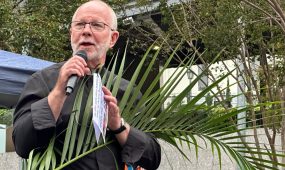Clergy Conference highlights and learnings
Reflections
Four chaplains and parish priests from our Northern and Southern Regions share about what they will take away from the recently held clergy conferences and how they will implement these insights into their ministries
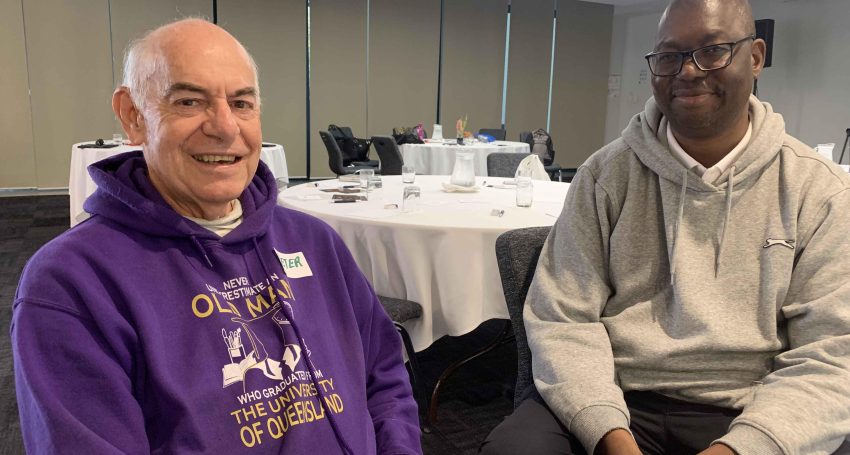
Four chaplains and parish priests from our Northern and Southern Regions share about what they will take away from the recently held clergy conferences and how they will implement these insights into their ministries, including The Rev’d Melusi Sibanda, The Rev’d Tania Eichler, The Rev’d Rebecca and The Rev’d Canon Ann McGuinness.
The Rev’d Melusi Sibanda – Chaplain, Canterbury College
During Stephen Harrison’s first “Missional Imagination” session that covered values, it hit me that we can be complacent if we become, as Stephen described it, “conceptually stuck” and “imaginatively gridlocked”.
What I am taking away from this conference is the importance of values. I will be taking away with me the relationships between personal values and operating values, which Stephen explored with us.
The Rev’d Richard Browning from the Anglican Schools Commission is working with schools to explore the idea of “Our story in circle”. As part of this, Canterbury College has put together an Anglican Schools ethos group of staff.
I intend to return the group to discuss the school’s values, including how we are living them and living up to them. The group is currently exploring whether the school’s current values are the most relevant to who we are now and the culture we wish to shape.
Values are important to culture because if they don’t get reviewed they can end up speaking to an outdated context and address past issues, rather than present-day concerns.
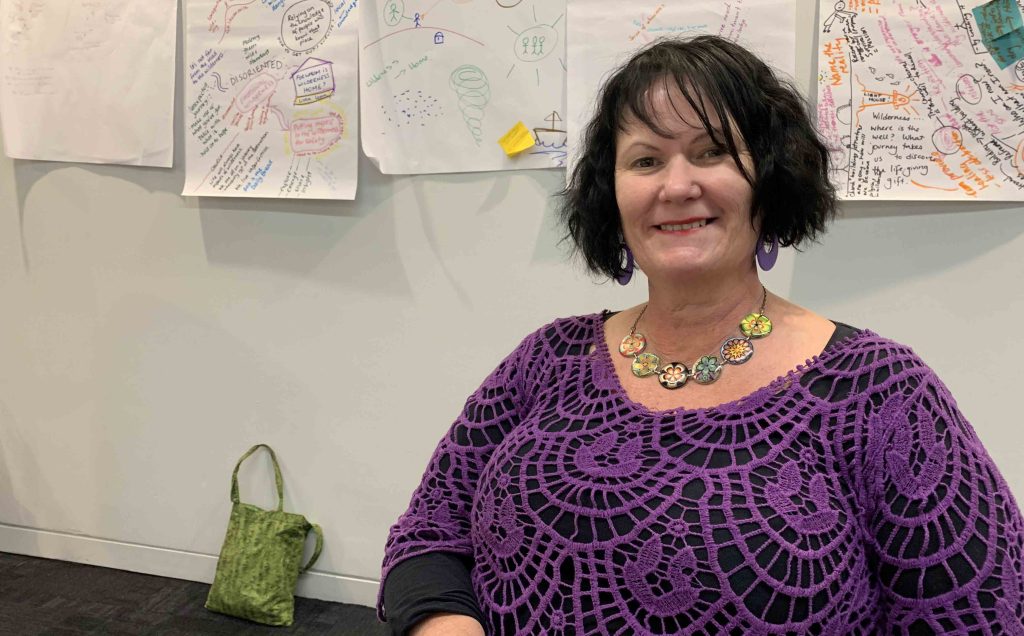
The Rev’d Tania Eichler from The Parish of Maroochydore at the Northern Region Clergy Conference in Noosa in August 2022
The Rev’d Tania Eichler – Rector, The Parish of Maroochydore
The Rev’d Dr Ruth Mathieson’s session on “Being in the Wilderness: Living, Learning and Loving in Liminal Spaces in the In-between Times” was a conference highlight. The main insight I took away from Ruth’s presentation is about transitioning as God’s people. Ruth’s session was complemented by the excellent “Missional Imagination” session run by Dr Stephen Harrison the following day.
She spoke about the “fleshpots of Egypt”, the “golden calves” that we mold, and our need to discern “the pillar of cloud by day and the pillar of fire by night”. In today’s context, this means that we need to look forward and discern the Holy Spirit’s call in mission, rather than in our rearview mirror at the “good old days”. The liminal space happens when a season ends and a new thing is yet to begin. This liminal period is exciting, with the promise of a new beginning that creates space for energy, renewal and potential.
Advertisement
Our world is full of VUCA – volatility, uncertainty, complexity and ambiguity – as identified in the leadership space in the late 1980s. Embracing vision, understanding, clarity and adaptability is a proactive response to VUCA and its impacts.
I preached on this the Sunday after the clergy conference, encouraging my faith community to pray and seek the Holy Spirit’s guidance as we discern our way forward. The whole community needs to pray and discern God’s call. As I write this, I am preparing for tonight’s Parish Council prayer and study evening of missional imagination, which will focus on “the pillar of cloud by day and the pillar of fire by night”, so we can continue discerning the Holy Spirit’s path for us.
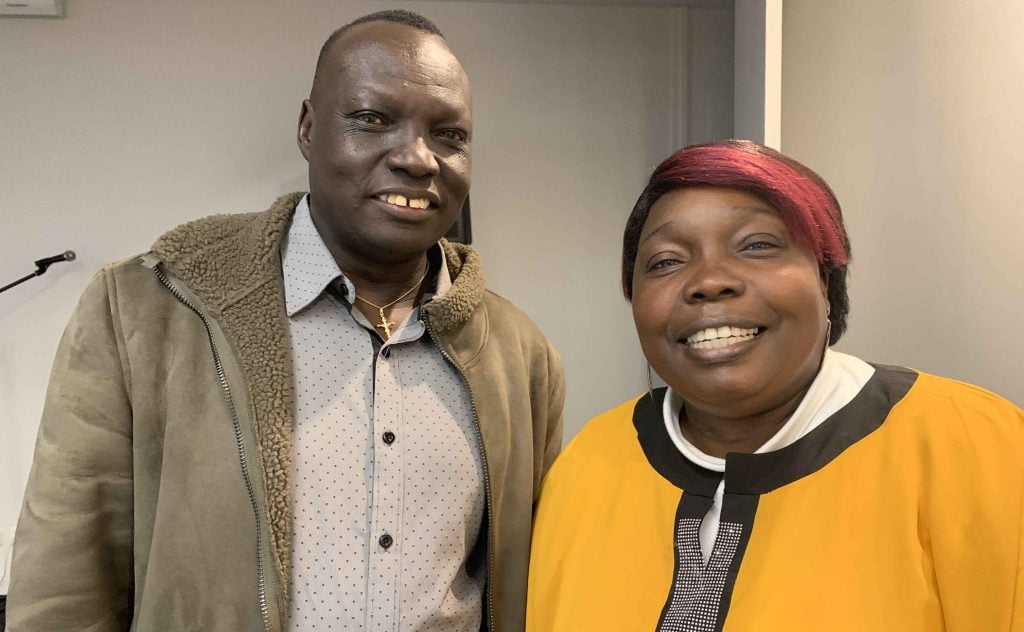
The Rev’d Rebecca from The Parish of Yeronga caught up with Bishop Daniel Abot at the Southern Region Clergy Conference in Noosa in August 2022
The Rev’d Rebecca – Priest-in-Charge, The Parish of Yeronga
The main learning I will take away from the clergy conference is from The Rev’d Dr Margaret Wesley’s presentation on “The Light of Revelation in the Darkness of Misinformation”. The learning is about different leadership styles. The leadership style that spoke to me is that of the “shepherd”.
For me leadership is about accountability, humility, sharing and caring for the flock. Margaret spoke about how Jesus is the shepherd and that all clergy, including Bishops, are shepherded by Jesus. By being shepherds we clergy need to be like Jesus in whatever we do and say.
Advertisement
When I return to my parish after the conference I want to help shape the parish into an even more sharing community. I want us to share everything more, including ideas, insights, the workload and resources. I intend to approach Parish Council to discuss needs and the barriers we have to break through to meet these needs. I also intend to plan for the parish’s future with the whole community of faith, including exploring what we can change, remove and bring in, so we can become a more sharing community.
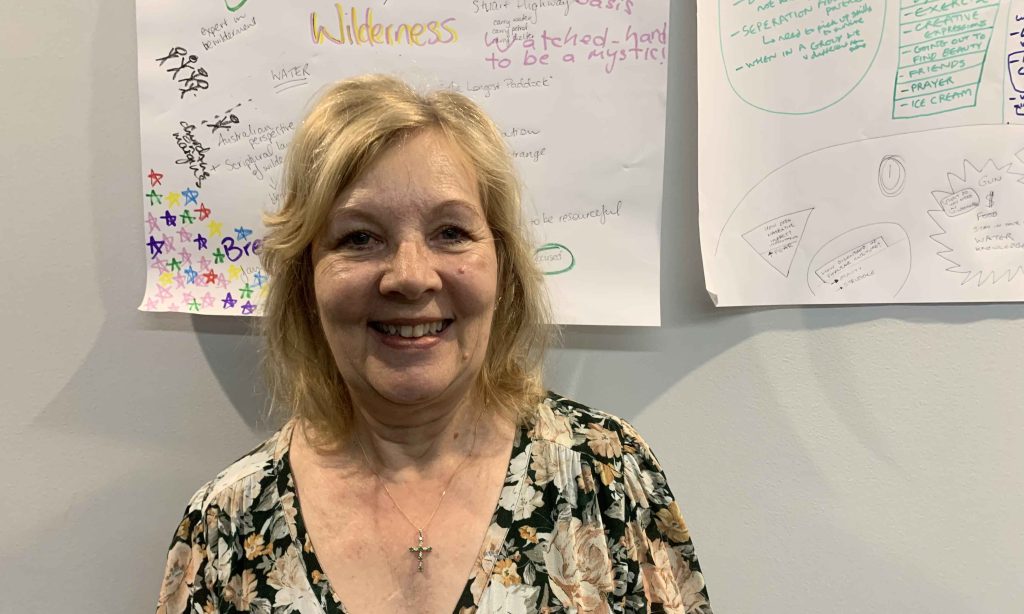
Chaplain of All Saints’ Anglican School The Rev’d Canon Ann McGuinness at the Southern Region Clergy Conference in Noosa in August 2022
The Rev’d Canon Ann McGuinness – Chaplain, All Saints’ Anglican School
A striking wander through the liminal spaces of the wilderness, the conference evoked reflection on how we are nourished during challenging in-between times. As a school chaplain, it is sometimes challenging to translate content from a largely parish-based conference, but Stephen Harrison’s insightful presentation encouraging us to find new metaphors for established structures and concepts to forge a cultural wake up, immediately piqued my interest. Seeing “cathedral” described as a “construction site office” on a group activity card was an illuminating start.
The story Stephen told of the baby fish needing to pop her head out of the water to understand what water is resonated strongly with me as I pondered the wilderness of working in a missional Anglican school whose community is largely unchurched. We inclusively embrace members of our community on our terms, expecting them to participate in Chapels, Eucharists, Easter services and Christian classes despite most having a different or no faith.
The challenge to understand the context of our broader community beyond the culture in which the school “swims” urges us to move from the familiar, so we may wake up to our own culture in a vibrant new way, blessing the whole community. I sense that a raft of respectfully curious conversations over our canteen tables might be entirely nourishing.




